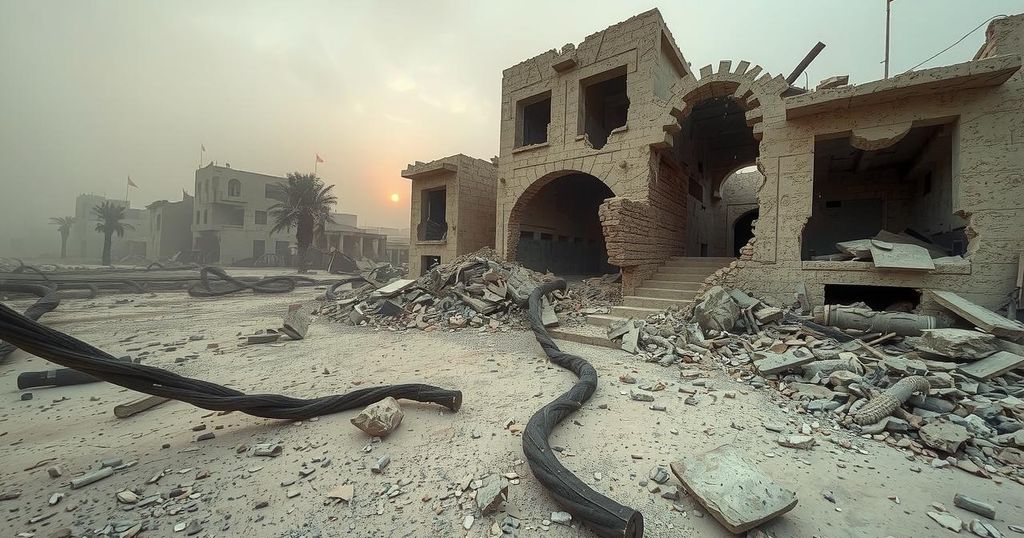The “Signalgate” controversy has spotlighted the detrimental impact of U.S. military communication on Yemeni civilians amidst an ongoing civil war. The leaked details may embolden the Houthis and exacerbate repression against citizens, contributing to a humanitarian crisis. This situation complicates the already vulnerable humanitarian landscape in Yemen, highlighting the need for prioritizing civilian welfare in geopolitical discussions.
The recent scandal known as “Signalgate” has drawn extensive attention following Jeffrey Goldberg’s report in The Atlantic, detailing how senior U.S. officials disclosed sensitive military plans against the Houthis in Yemen via a Signal group chat. Much of the media coverage has focused on implications for Western security, including the breach of confidentiality and improper communication methods. However, the repercussions for Yemen, particularly for its civilian population, are dire and often overlooked.
Yemeni civilians find themselves in a precarious situation amidst a prolonged civil war, which began in 2014 with the Houthi takeover of Sana’a. The involvement of a Saudi-led coalition in 2015 aimed at supporting the Yemeni government further intensified the violence and established a crippling blockade until 2021. Humanity’s impact is deeply felt with soaring malnutrition rates as the Houthis utilize food distribution as a weapon while brutally suppressing dissenters.
The Houthis have taken aggressive actions in the Red Sea, inciting retaliatory strikes from the United States, United Kingdom, and Israel, which have unfortunately increased civilian casualties. The discussions implied that the March 15 strikes were not intended to destabilize Houthi power but rather to convey a message, which may embolden the group to engage in aggressive recruitment efforts against civilians. They aim to control the oil-rich city of Marib, a strategic asset for their survival.
Despite the Trump administration’s claims that the Signal chat did not compromise intelligence sources, sensitive information was indeed leaked, endangering Yemeni lives. Notably, an intelligence officer’s name was mentioned in the chat, prompting The Atlantic to remove it for security purposes. This decision illustrates a troubling disparity in whose security is prioritized compared to the risks faced by Yemeni civilians.
The details shared in the transcript also provide the Houthis with leverage to validate their retaliatory crackdowns against perceived espionage. While the U.S. maintains the strikes were targeted, the ramifications extend far beyond military ramifications, as they exacerbate the vulnerability of civilians, often leading to kidnappings and suppressions of independent voices across various sectors, including humanitarian aid.
Yemeni populations have seen a rise in abductions by the Houthis, often affecting aid workers and dissenters alike, further restricting humanitarian assistance. The cycle of abductions not only deters local and international aid providers from advocating for Yemeni rights but also grants the Houthis increased control over the distribution of essential resources, manipulated according to their political agenda. Civilians remain marginalized in broader geopolitical dialogues, and the revelations from Signalgate serve as a glaring reminder of their neglected plight in international discussions.
In conclusion, “Signalgate” has not only raised concerns regarding U.S. military communications and security but has also intensified the already precarious situation for Yemeni civilians. The information disclosed provides the Houthis with critical intelligence, potentially leading to increased civilian repression and undermining humanitarian efforts. As geopolitical considerations overshadow the dire conditions faced by the Yemeni populace, it is imperative that their voices and rights are prioritized in the international arena to mitigate further suffering and instability.
Original Source: theconversation.com




